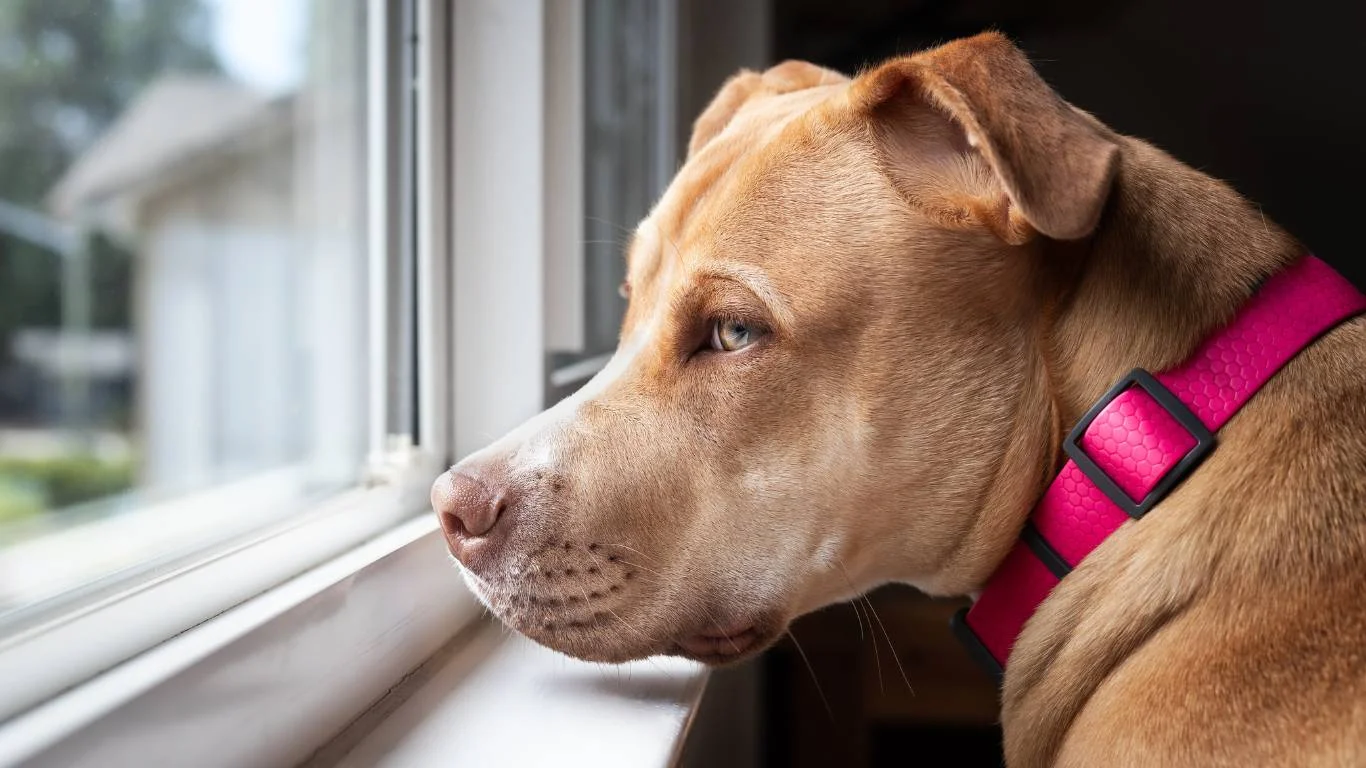What to Feed a Dog with an Upset Stomach: Simple, Soothing Solutions
When your dog isn’t feeling well, it can be a worrying time for both you and your furry friend. One of the most common issues pet owners face is an upset stomach. It’s not unusual for dogs to experience digestive issues from time to time, but knowing what to feed a dog with an upset stomach can make all the difference in their recovery. In my years as a Pet Nutritionist and working closely with veterinary clinics, I’ve seen countless cases of dogs experiencing digestive distress, and the right nutrition is often the key to helping them feel better quickly.
Understanding Your Dog’s Upset Stomach

If your dog is showing signs of an upset stomach, such as vomiting, diarrhea, or lack of appetite, it’s crucial to first rule out any serious medical conditions. Many common causes of stomach discomfort, like food intolerances, stress, or a minor digestive upset, can often be addressed through diet. However, if symptoms persist for more than 24 hours or if your dog seems lethargic, consult your vet to ensure there’s no underlying issue that requires medical attention.
But let’s get to the fun part—what to feed a dog with an upset stomach! The goal when choosing food for your dog during this time is to provide easy-to-digest, bland foods that will soothe their stomach without overwhelming their digestive system. As a pet nutritionist, I always recommend starting with a gentle approach and keeping things simple until your dog’s tummy settles.
Foods to Offer Your Dog with an Upset Stomach
When your dog has an upset stomach, you want to choose foods that are both gentle on their digestive system and provide essential nutrients to help them recover. Here are some of my go-to recommendations:
- Boiled Chicken and Rice: This is a classic recommendation for a reason! Plain, skinless chicken breast and white rice are both easy to digest and provide a good source of protein and carbohydrates. The simplicity of this combination gives your dog’s stomach the break it needs while still offering some nutrition.
- Boiled Potatoes: Sometimes, your dog may tolerate boiled potatoes better than rice. Just make sure they’re plain—no butter, salt, or seasoning. Potatoes are a great source of carbohydrates that are easy on the stomach and can help bind stool if your dog is experiencing diarrhea.
- Plain Pumpkin Puree: Not only is pumpkin a great source of fiber, but it’s also very soothing for the stomach. It can help firm up loose stool and provide some much-needed digestive relief. Just make sure it’s plain canned pumpkin and not the spiced variety used for pies!
- Bone Broth: If your dog isn’t eating, offering them a little bone broth can encourage hydration and provide soothing nutrients. Bone broth is rich in collagen and amino acids, which can aid in the healing process for your dog’s digestive tract.
The Importance of Hydration
One thing that often gets overlooked when a dog has an upset stomach is hydration. Diarrhea and vomiting can quickly lead to dehydration, which can make your dog feel worse and prolong their discomfort. In my experience, encouraging your dog to drink small amounts of water frequently is just as important as feeding them the right foods. You can even try offering an ice cube or ice chips if they’re not interested in drinking water. This can be a good way to keep them hydrated without overwhelming their stomach.
If your dog is refusing water, you can try offering them an electrolyte solution made for pets, or even a bit of diluted bone broth. Just make sure you don’t give them anything with artificial sweeteners, especially xylitol, which is toxic to dogs.
When to Fast Your Dog
Sometimes, less is more when it comes to an upset stomach. Fasting is a common approach in veterinary practice when a dog is experiencing gastrointestinal distress. The idea is to give your dog’s digestive system a break so it can heal and recover. A 12-24 hour fast (under supervision) can allow your dog’s stomach to rest, but always make sure your dog has access to fresh water during this time. If you’re unsure whether fasting is appropriate for your dog, it’s always a good idea to consult with your veterinarian first.
It’s important to note that fasting is typically not recommended for puppies, senior dogs, or dogs with underlying health issues, as they may have special dietary needs. Always err on the side of caution and consult with a vet before making any changes to your dog’s feeding routine.
Signs Your Dog Needs Veterinary Attention

While most upset stomachs resolve with some simple dietary adjustments, there are times when you should seek veterinary care. If your dog shows any of the following signs, it’s best to have them checked out by a professional:
- Vomiting or diarrhea that lasts more than 24 hours
- Severe lethargy or a noticeable decrease in activity levels
- Refusal to eat or drink for more than 24 hours
- Blood in the stool or vomit
- Signs of pain or discomfort, such as whining, whining when touched, or excessive licking
These could indicate something more serious, such as an infection, parasite, or a more severe gastrointestinal issue. Your vet can help rule out any major concerns and offer more advanced treatment options if necessary.
Don’t Stress—Your Dog Will Be Fine!
As a pet owner, it’s natural to worry when your dog isn’t feeling well, but rest assured, most cases of upset stomach are temporary and can be easily managed with the right care. By providing your dog with bland, easy-to-digest foods, keeping them hydrated, and giving their stomach time to recover, you’ll likely see improvements within a day or two. Just remember, if things don’t improve or your dog’s condition worsens, don’t hesitate to reach out to your vet. Your furry friend will be back to their playful self in no time!
Foods to Avoid When Your Dog Has an Upset Stomach

When it comes to helping your dog recover from an upset stomach, it’s just as important to know what not to feed them as it is to know what to feed them. In my years of experience working with veterinary clinics, I’ve seen many dogs with stomach issues that worsened because their owners unknowingly gave them foods that are too rich, too spicy, or just plain hard to digest. Here’s a list of foods you should avoid when your dog is feeling under the weather:
- Fatty Foods: Foods that are high in fat can be tough for a dog’s digestive system to break down, especially when they’re already feeling sick. Fatty cuts of meat, greasy foods, or anything fried can cause even more irritation. Stick to lean proteins like chicken breast.
- Dairy: While some dogs may tolerate dairy, many cannot. Dairy products can upset your dog’s stomach, especially when they’re already dealing with an upset stomach. Avoid milk, cheese, and other dairy products until your dog is feeling better.
- Spicy or Seasoned Foods: Seasonings like garlic, onions, and spices can irritate a dog’s stomach and even cause toxicity in some cases. Keep things bland and simple while your dog is recovering.
- Raw or Undercooked Meat: Raw meat is always a risk for foodborne illnesses, and when your dog is dealing with stomach issues, it’s best to avoid the risk. Make sure all food is fully cooked and safe for digestion.
- Human Snack Foods: Chips, cookies, or any other human snacks are not suitable for dogs—especially when they have an upset stomach. These foods often contain ingredients like salt, preservatives, or sugars that can make things worse.
How to Transition Back to Normal Feeding

Once your dog starts feeling better, it’s time to think about transitioning them back to their regular diet. However, this should be done gradually to avoid any further stomach upset. Rushing the transition can irritate your dog’s digestive system, especially if they’ve been eating bland foods for a few days.
Start by mixing small amounts of their regular food with the bland food you’ve been feeding them (like boiled chicken and rice). Gradually increase the proportion of their regular food while decreasing the bland food. This process typically takes 3 to 5 days, depending on how well your dog tolerates the change. If they seem to develop any digestive issues again, slow down the transition and try again in a day or two.
As a pet nutritionist, I always stress that it’s important to monitor your dog’s behavior and appetite during this phase. Some dogs may be a little reluctant to go back to their normal food after eating something bland for a while. If that’s the case, try to make their regular food more enticing by adding a little bit of broth or warming it up to release the scent. That extra little bit of attention can make all the difference!
Probiotics and Digestive Enzymes
To support your dog’s digestive health as they recover, consider incorporating probiotics or digestive enzymes into their diet. These supplements help restore the balance of good bacteria in your dog’s gut, which can be disrupted during a stomach upset. I’ve seen many clients have success with probiotics for dogs, especially in cases of diarrhea or after a course of antibiotics.
There are plenty of probiotic supplements available specifically for dogs, and they can come in the form of powders, chews, or capsules. If you’re unsure which one to choose, ask your veterinarian for recommendations based on your dog’s unique needs. Sometimes, a vet will even suggest specific strains of probiotics that are particularly beneficial for gastrointestinal health.
Home Remedies and Natural Treatments
If you prefer a more natural approach to helping your dog recover from an upset stomach, there are a few home remedies that can sometimes help ease their discomfort. While these can work well for mild cases, remember that it’s always best to consult with your vet if your dog’s symptoms persist. Here are a few common natural treatments I’ve used and recommended in my practice:
- Ginger: Ginger has long been known for its ability to soothe an upset stomach and reduce nausea. You can offer your dog a small amount of ginger (fresh or in powdered form) mixed into their food. Just be sure to keep the dose small to avoid any potential side effects.
- Slippery Elm: Slippery elm bark has soothing properties that can help calm an irritated stomach. You can find slippery elm supplements for dogs or mix it into a small amount of food. It’s often used to treat digestive issues like diarrhea and vomiting.
- Chamomile Tea: Chamomile has anti-inflammatory properties and can be calming for dogs with digestive issues. You can brew a weak chamomile tea, cool it down, and offer small amounts to your dog. However, be cautious if your dog is allergic to plants in the daisy family, as chamomile belongs to that group.
Managing Stress and Anxiety to Prevent Future Upset Stomachs

While diet plays a huge role in managing an upset stomach, stress and anxiety can also be significant contributors. In my experience, many dogs develop stomach issues due to stressors in their environment, like loud noises, changes in routine, or separation anxiety. If your dog’s upset stomach seems to be triggered by stress, it’s essential to address the root cause of the problem, not just treat the symptoms.
To help reduce stress, create a calm and predictable environment for your dog. Stick to a regular feeding schedule, provide them with a quiet space to relax, and try calming aids like pheromone diffusers or anxiety wraps. Regular exercise and mental stimulation can also help reduce anxiety in dogs.
If your dog’s stress-related stomach issues are frequent, it may be worth discussing with your vet or a pet behaviorist to explore ways to better manage their anxiety. Sometimes, a change in lifestyle or even specific behavior training techniques can make a huge difference.
So, if your dog’s upset stomach becomes a recurring issue, it’s always a good idea to dig a little deeper to identify the cause. A combination of diet, stress management, and veterinary care can usually get your dog feeling better in no time.
When to Seek Professional Help for Your Dog’s Stomach Issues

As a pet parent, it can be hard to know when an upset stomach is simply part of the routine or when it’s time to call in the professionals. While most minor digestive issues will resolve with simple dietary adjustments, there are situations where you should seek veterinary attention immediately. As a pet nutritionist, I always tell pet owners to trust their instincts and err on the side of caution.
If your dog’s symptoms last more than 48 hours or if they start exhibiting additional signs like extreme lethargy, difficulty breathing, or severe vomiting and diarrhea, it’s time to get them checked out. Likewise, if your dog has a pre-existing medical condition like pancreatitis, kidney disease, or diabetes, you should contact your vet even if the symptoms seem mild. These conditions can make them more vulnerable to gastrointestinal distress, and prompt treatment can make a big difference.
Here are some red flags that should never be ignored:
- Severe vomiting or diarrhea: If your dog is vomiting repeatedly or has diarrhea that doesn’t improve within a day, it could indicate a more serious issue, such as a gastrointestinal infection or even poisoning.
- Signs of dehydration: Dehydration is a big concern when a dog is losing fluids due to vomiting or diarrhea. Signs of dehydration include dry gums, sunken eyes, and a decrease in skin elasticity (when you pinch their skin, it doesn’t bounce back).
- Blood in vomit or stool: This is a clear sign that something more serious is going on. Blood in vomit or stool could indicate an ulcer, a more severe gastrointestinal issue, or even intestinal obstruction.
- Extreme lethargy or changes in behavior: If your dog becomes lethargic to the point where they won’t get up or interact with you, this is a concern. Likewise, if your dog is suddenly disoriented or acting strangely, seek veterinary advice.
While it’s always scary to think of your pet being sick, remember that the earlier you catch a problem, the better the outcome tends to be. So, don’t hesitate to reach out to a vet for guidance or if you’re just feeling unsure about what to do next. You know your dog better than anyone, and your vet is there to help you through these situations.
Preventing Upset Stomachs in the Future

Now that we’ve talked about how to manage an upset stomach, let’s look at ways to prevent it from happening again. A little proactive care can go a long way toward keeping your dog’s digestive system in tip-top shape. Here are some simple strategies that I’ve seen work time and time again in my work as a pet nutritionist:
1. Stick to a Consistent Feeding Schedule
Dogs thrive on routine, and that includes their feeding schedule. Try to feed your dog at the same times every day, and avoid free-feeding (leaving food out all day) to prevent overeating or overeating at the wrong times. A predictable feeding schedule helps your dog’s digestive system stay regular, reducing the chances of upset stomachs.
2. Avoid Abrupt Diet Changes
Sudden changes in diet can shock your dog’s digestive system, leading to upset stomach, vomiting, or diarrhea. When you do need to change your dog’s food—whether you’re trying a new food brand or switching to a different protein source—make the transition gradual. Mix in a little bit of the new food with the old food over the course of 7-10 days to help ease the transition. This gives your dog’s stomach time to adjust.
3. Feed High-Quality Dog Food
One of the most important ways to support your dog’s digestive health is to feed them high-quality food. Look for foods that list a high-quality protein source (like chicken, lamb, or beef) as the first ingredient, and avoid foods with fillers like corn, soy, or by-products. A balanced, nutrient-rich diet will help maintain a healthy gut and prevent issues like constipation, diarrhea, and bloating.
If you’re unsure about what constitutes a high-quality dog food, feel free to consult with a pet nutritionist or your veterinarian. They can recommend brands or formulas tailored to your dog’s specific needs, based on their age, breed, and health status.
4. Limit Table Scraps and Treats
It can be tempting to share your food with your dog, especially when those puppy-dog eyes are looking up at you, but it’s important to resist the urge—especially when it comes to rich or fatty foods. Table scraps can be hard on a dog’s digestive system and may lead to upset stomach, gas, or diarrhea. Stick to treats specifically made for dogs, and remember, moderation is key.
5. Keep Stress Levels Low
As mentioned earlier, stress can have a direct impact on your dog’s digestive health. Try to keep your dog’s environment calm and predictable, and avoid sudden changes in their routine. If your dog is prone to anxiety, talk to your vet about ways to manage their stress, whether it’s through behavior training, calming supplements, or anxiety wraps.
In addition, make sure your dog gets regular physical and mental exercise. A tired dog is usually a happy and calm dog, and regular activity helps keep their digestive system running smoothly. Just be mindful of not over-exercising them right after meals, as this can cause bloating or digestive upset.
References and Resources
If you’re looking for additional information or resources on dog nutrition, stomach issues, and overall care, here are some reputable sites to check out:
- PawPatron – A great resource for pet health, nutrition, and wellness.
- American Veterinary Medical Association – A trusted organization for veterinary guidance and pet health information.
- ASPCA – Provides information on pet health, behavior, and nutrition.
Disclaimer
The content provided in this article is for informational purposes only and is not intended as medical advice. Always consult with a licensed veterinarian for any health concerns related to your dog. Every pet is unique, and their specific health needs should be addressed on an individual basis. While the advice shared here can help many dogs with mild digestive issues, it’s always important to get professional help for any health-related concerns.






